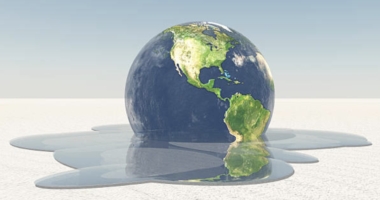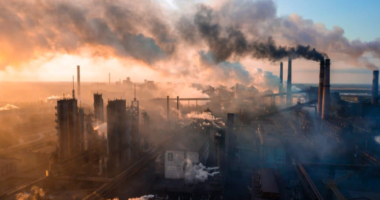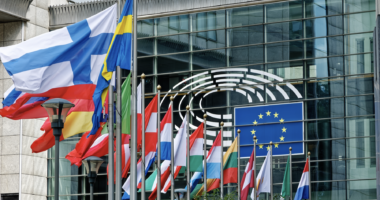Climate, Health and Equity Brief
Reasons for Hope
January 16, 2024

The Climate, Health & Equity Brief is GMMB’s take on the last two weeks’ news on the current impacts of climate change. If you haven’t subscribed yet, you can do so by clicking here.
Hot Topic: Bullish. Despite record-breaking heat and devastating natural disasters, 2023 brought encouraging steps toward climate progress. The United States reduced emissions by 1.9% last year after two years in which emissions rose. Global renewable energy capacity grew by 50%—the fastest pace recorded in the last 20 years. The U.S. and China—the world’s two leading emitters—together agreed to triple global renewable energy capacity by 2030. Record growth in Europe, the U.S. and Brazil has put renewables on track to overtake coal as the largest source of global electricity generation by early 2025, according to the IEA. And scientists at Lawrence Livermore National achieved repeated nuclear fusion ignition in 2023—a process hailed by some as the “holy grail” of clean energy that could unlock a source of unlimited clean power if it can be scaled successfully.
Several stories this week show that a range of mitigation and adaptation advances are also taking hold at the local level. A carbon offset program in Juneau, Alaska, uses tourist donations to purchase and install heat pumps, supporting the city’s goal of achieving 80% renewable energy use by 2045. Puerto Rico is in the midst of a surge in demand for residential solar power, with an average of 3,400 new installations per month. And around the globe, more than a dozen countries have implemented the Green Roads for Water program, retrofitting thousands of kilometers of roads to help control floods and harvest excess water for irrigation in the face of both increasing droughts and epic rainstorms.
We are choosing to be bullish about 2024—a year ripe with local, national and global opportunities to build upon recent momentum. In the U.S., the financial incentives passed in the Inflation Reduction Act will continue to accelerate the deployment of clean technologies. State energy offices will begin to roll out rebates for U.S. homeowners to make their homes more energy efficient. Tax credits for new and used EVs will become more buyer-friendly, reducing the purchase price of eligible vehicles at the time of sale. And globally, the World Bank is expected to operationalize the historic loss and damage fund, disbursing money to the developing nations that have done the least to bring about climate change but suffer the most from its impacts. We remain hopeful that such forward motion will continue to accelerate the world’s clean energy transition—and not a moment too soon.
Human Health
A new PNAS study reveals that people drinking water out of single-use plastic bottles are swallowing hundreds of thousands of microplastics and nanoplastics – about 240,000 particles per liter—a revelation that could have profound implications for human health. (The Washington Post)
In areas such as the Pacific Island of Fiji, increasingly intense coastal erosion, sea level rise, and cyclones are fueling substantial distress among residents about the loss of their land, culture and the inevitable need to relocate. (The Conversation)
Planetary Health
2023 was the hottest recorded year on Earth, with planetary warming hitting 1.48°C above pre-industrial levels—just shy of the 1.5C° threshold that the Paris Agreement warned we must stay below in order to avoid the worst impacts of the climate crisis. (CNN)
And yet…scientists are predicting that 2024 could be even hotter than last year, making it the first time that average planetary temperatures could regularly exceed 1.5°C above pre-industrial levels. (The Washington Post)
The US faces a barrage of blizzards, torrential rain, high winds, and a polar vortex to kick off the year, posing safety risks, causing widespread travel disruptions and highlighting the influence of climate change in a range of intensifying extreme weather events. (Axios)
A first-of-its-kind report from The Recycling Partnership has found that at home, Americans throw 76% of their recyclables in the trash—and that nationally, only 59% of households that have access to recycling programs actually recycle. (Bloomberg)
Take a look back at some of the most impactful climate events of 2023 in this jaw-dropping collection of images that underscore the human and planetary impact of the climate crisis. (AP News)
Equity
Take a look at some of the best climate justice stories of 2023, including teacher unions tackling climate change, growing climate-driven philanthropy, the connection between public libraries and climate justice, and more. (Nonprofit Quarterly)
To tackle its dual challenges of dry spells and destructive floods, Kenya’s Makueni County has embraced Green Roads for Water to successfully retrofit roads to capture rainwater for agricultural use—setting a pioneering example for other developing countries. (Yale Environment 360)
According to a new report, a record 32.6 million internal displacements were attributed to climate disasters in 2022—41% higher than the annual average over the past decade—with four of the five most impacted countries located in Asia. (CNBC)
Politics & Economy
New research reveals increasing migration within the U.S. due to climate impacts, with populations relocating away from flood-prone regions, sparking concerns about “climate abandonment” zones and emphasizing the increasing climate repercussions on American real estate and community dynamics. (Axios)
Climate change is altering global trade flows as evidenced at the Panama Canal, where drought is forcing leaders to consider drastic measures–including damming multiple rivers and piping water across the country–to facilitate vessel traffic through the canal and return associated revenue to its pre-drought levels. (Bloomberg)
Congressional Republicans have begun a probe of the Energy Department, hoping to slow President Biden’s ability to distribute $400 million in climate loan funding and hinder a key part of his climate agenda. (Bloomberg)
A new report found that the number of Americans who think global warming is happening outnumber those who don’t by a ratio of nearly 5 to 1, and 46% think people in the United States are being harmed by global warming “right now.” (Yale)
Action
2023 was a year of groundbreaking progress in shoring up clean energy, retiring fossil fuels, capturing carbon, reimagining mobility, establishing better building practices, and cleaning up dirty business. (Grist)
Lawrence Livermore National Laboratory’s success in achieving repeated nuclear fusion ignition in 2023 marks a monumental step towards unlocking clean, nearly boundless energy—and presents a historic milestone despite challenges to scaling the practice for practical implementation. (The Independent)
The Department of Agriculture announced plans to amend its forest land management to prohibit timber harvesting in old-growth forests, increase biodiversity, and reduce wildfire risks. (PBS)
To offset carbon emissions from tourist cruises in Juneau, Alaska, tourists are asked to donate a few dollars to the highly effective Alaska Carbon Reduction Fund, which funds heat pumps for Alaskan residents previously using fossil fuel-rich oil heating systems. (Grist)
Life as We Know It
The three grapes used in almost all champagne—pinot meunier, chardonnay, and pinot noir— are among hundreds of grapes on the brink of extinction due to human-caused climate issues and altered weather patterns. (CNN)
Kicker
Looking to make some climate-conscious New Year’s resolutions? Check out this list of ideas from Bloomberg Green to spur some climate action in 2024.
It really boils down to this: all life is interrelated. We are all caught in an inescapable network of mutuality, tied into a single garment of destiny. Whatever affects one directly affects all indirectly.
– Dr. Martin Luther King Jr.
The GMMB Climate, Health & Equity Brief would not be possible without the contributions of the larger GMMB team—Aaron Benavides, Stefana Hendronetto, Nikki Melamed, Sharde Olabanji and Marci Welford. Feedback on the Brief is welcome and encouraged and should be sent to [email protected].





